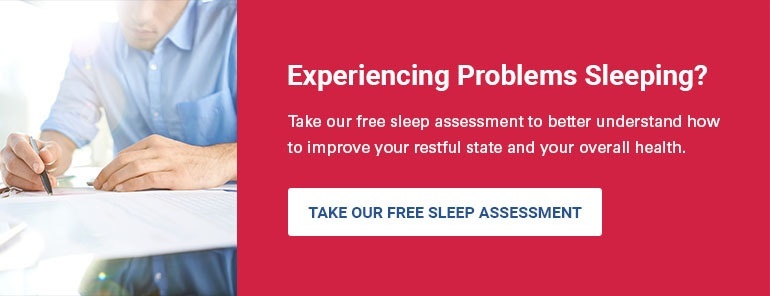We are family – but is sleep apnea hereditary?
‘Sleep apnea runs in my family. Does that mean I’m also destined to experience the chronic sleeping condition?’
It’s a common question that might be a little close to home, but it’s one that we hear quite often.
We all known that Kiwis are big on family, but how much does family members and their sleeping problems have a bearing on your own risk of developing sleep apnea?
If you have a family member in your life who has sleep apnea, hopefully they are actively seeking treatment through one of the many solutions available.
But if there’s any possibility that you might have sleep apnea or have the potential to develop it, you’ll definitely want to know – as sleep apnea can be dangerous to your health and wellbeing if left untreated.
So is there any truth to the belief that sleep apnea may be hereditary?
Are certain people more likely to have sleep apnea than others?
In many ways, sleep apnea doesn’t discriminate and many people can suffer from sleep apnea at some point in their lives.
In fact, men, women and even children can develop sleep apnea – so it’s not hard to see why it’s known as the most common sleeping disorder1.
Before we explore who is more likely to experience sleep apnea, it’s important to understand how sleep apnea occurs, even though the reasons as to why are wide and varied.
Sleep apnea is the result of the interruption which occurs during sleep when the airways are blocked. This usually happens when the soft tissue in the back of the throat collapses as you breathe.
People with sleep apnea stop breathing constantly during their sleep – sometimes for hundreds of times – even though they might not realise that it’s happening2.
Considering these factors, it’s easy to see why people who are overweight or who have a thick neck circumference are at a greater risk of developing sleep apnea.
In addition to these factors, there are also strong links to suggest that sleep apnea may be linked to genetics.
Is sleep apnea in my genes?
As sleep apnea is causes by a blockage to the airways, physical traits that you may share with your family members such as your face and skull shape do contribute to your risk of having sleep apnea.
In other words – in the same way that you may look like your relatives, there’s a chance that you may also share similar facial structures which may make you more likely to have sleep apnea.
It’s all backed up by research, which has found that family history is an indicator of the possibility of sleep apnea, with 25 to 40 per cent of people who have sleep apnea also having family members who have the condition3.
Taking the first steps and seeking advice
If you have a family member with sleep apnea, the best thing you can do is be proactive and explore whether you’re at risk of the sleeping condition and how to seek treatment.
We suggest downloading a copy of our free eBook, ‘8 Ways to Sleep Better Tonight’ which is packed full of advice to help prevent sleep apnea, as well as solutions on how to treat the problem.
The guide will prepare you for the conversation you will need to have with your loved one and your doctors, as well as a sleep diary to help you narrow down what’s affecting your sleeping patterns.
Download a copy of our free eBook here.
References:
[1] https://sleepfoundation.org/sleep-news/could-my-child-have-sleep-apnea
[2] http://www.webmd.com/sleep-disorders/sleep-apnea/sleep-apnea
[3] http://www.webmd.com/sleep-disorders/sleep-apnea/obstructive-sleep-apnea-causes#3






Comments